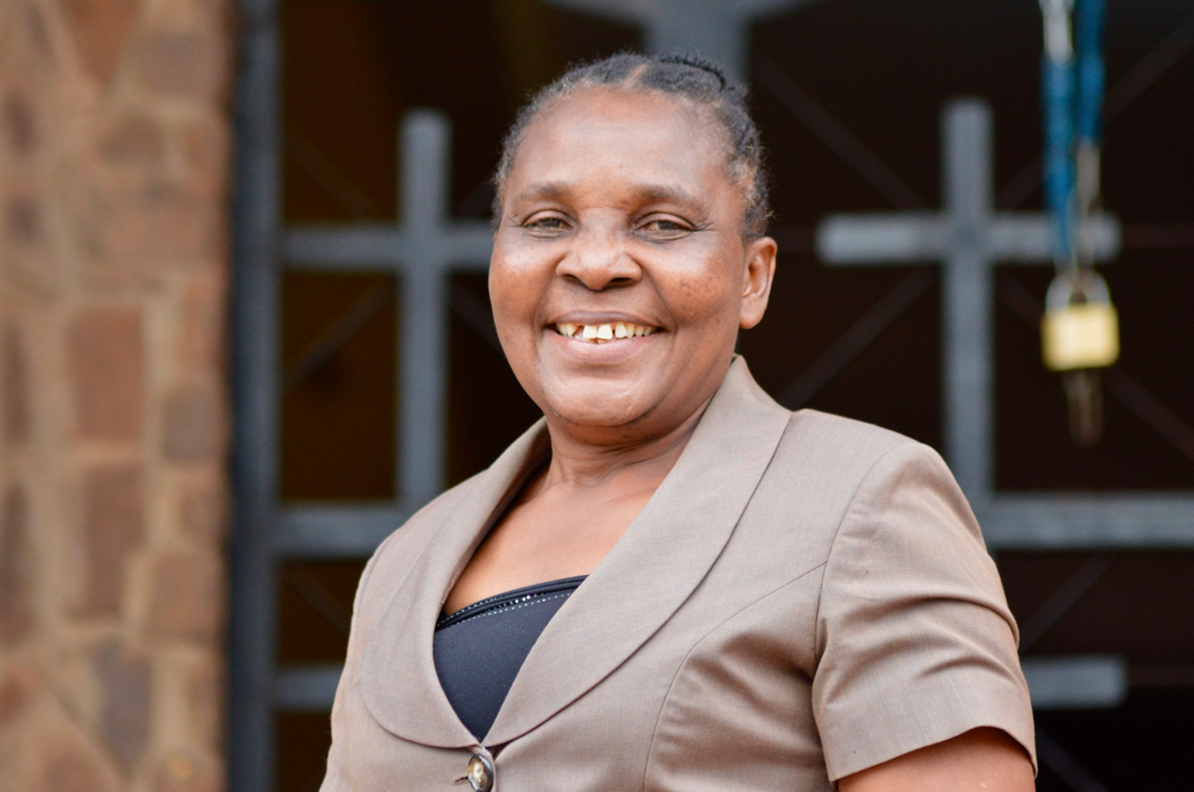In July 1996, at a translation training Akibom Ofoegbu first met Ukun, the Professor of Linguistics at the University of Calabar. It was in the course of relating with him in the translation department that she got to know he was a pioneer student while he was an undergraduate. At that time he began to question why the Ibibio language was not read or taught in the schools. So he developed the orthography, root premieres and pursued the process with the Minister of Education, both locally and nationally in Nigeria, to make sure that Ibibio language was included in the curriculum, if not in the entire nation, at least in the states where people who spoke Ibibio lived.
Once the language was officially acknowledged in schools for the Ibibio people, Ukun then started to translate the Bible. However, there were challenges. After the death of his wife, he was downcast, the work suffered, there were no translation meetings. Then one day he called and said, “My wife came to me in the dream and said, ‘There is one work you have not concluded. And I say don’t leave your people without a Bible.'” And that was how the dying project started again. Even while Ukun was on the sick bed, he was still doing the work. The Ibibio translation project would not be where it is today without his dedication and passion for his people, this language, and God’s Word.

“A week or two before Professor Ukun, the first ibibio translator, died, I spoke with him,” recalls Akibom Ofoegbu, the initial translation coordinator and project manager for the Ibibio project. “He told me that his passion is to make sure that his people will have the Ibibio Bible. So such was his passion when he was alive and is the same passion we are taking on so that it will not die but be completed. His children are excited to see it be printed.”
“In the past, Ibibio people were forced to use the Efik language,” says Akibom, “and by using the Efik Bible, it meant they had to learn Efik, even though they are not Efik speakers. But now with the Ibibio translation project, we are finding joy among the people that they are going to own a Bible in their own mother tongue. From the moment we began until now a local ruler of the Ibibio, the ‘Ntisong,’ [Vice President] has been on our neck, calling and saying, ‘I want to have the Bible as soon as possible.’ That is the excitement, and that is the thrill, and that’s our drive to make sure that the Ibibio people, wherever they are, will have a Bible in the Ibibio language.”
Nearly 100% Christian, the Ibibio are regarded as the most ancient of all the ethnic groups in Nigeria, yet at this moment there is no Bible translation in their language. The translation that began more than 20 years ago has released the very first Ibibio New Testament in August of 2020. It was a very joyous celebration for all. “People of God see the Bible that is written in Ibibio Contemporary Version here!!! May glory, honor, and everlasting praise be given to God’s name – Amen,” said Prof. Margaret Mary Okon from the University of Calabar, who attended the launch celebration event.
Nigeria, the most populous country in Africa, is divided roughly in half between Christians, who live mostly in the southern part of the country, and Muslims, who live mostly in the north. The Ibibio people live primarily in Southeast Nigeria some also in Cameroon and most engage in farming, fishing, or trading. 62.3% of Nigeria’s population is under the age of 24. A new translation will attract younger Ibibio people who are put off by the old literal style of other dialects. This could bring a spiritual revival among the youth and strengthen Christian witness and purity among more than 10 million Nigerian and Cameroonian Ibibio. Pray for the Ibibio people as they use this New Testament for ministry and continue to lift up the translators as they keep working on the Old Testament to be released in 2025.
“This Ibibio Bible is an everlasting legacy of the Ibibio people. We are very very happy and remain grateful to the sponsors.” – A member of the Akwa Esop Imaisong Ibibio Council
“This is a beautiful and a very timely project that will preserve Ibibio language from extinction and immensely help the younger generation. First of its kind. I join other people to thank Biblica, the sponsors and partners and all involved in this great work of God. God bless you all.” – Ignatius Ibanga, a member of the team


